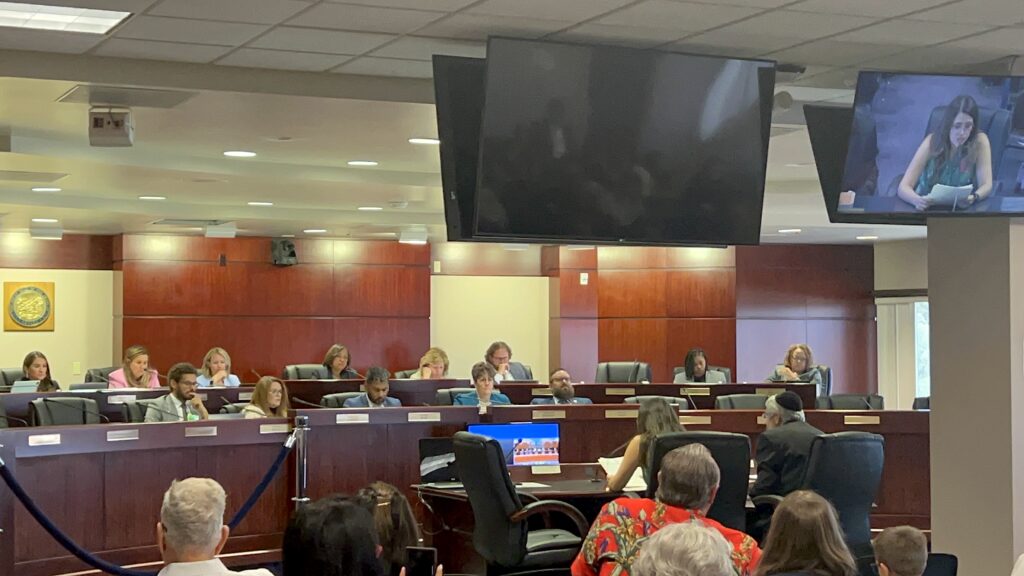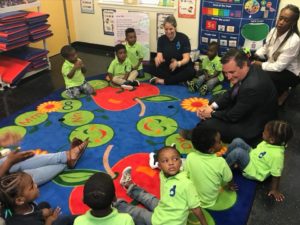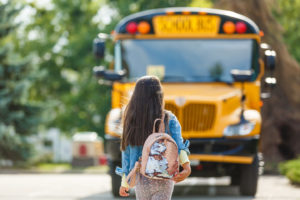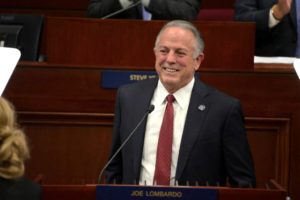Democrats nix governor’s plan to save hundreds of low-income school choice scholarships in Nevada
Hundreds of low-income Nevada students could be forced out of their schools after a Nevada legislative committee voted along party lines against the Republican governor’s proposal to fund the…

Hundreds of low-income Nevada students could be forced out of their schools after a Nevada legislative committee voted along party lines against the Republican governor’s proposal to fund the scholarship program.
“In an act of callous partisanship, today Democrats turned their backs on hundreds of low-income students that our traditional school system has failed or left behind,” Gov. Joe Lombardo said in a statement posted online. “Forcibly removing hundreds of low-income students from their schools after the school year has already begun is devastating and simply incomprehensible.”
At Wendesday’s 12-hour meeting of the Interim Finance Committee, the Opportunity Scholarship Program for low income families took center stage.
It comes after a July report that nearly 600 students were expected to lose access to their school choice scholarships, leading the governor to request $3.2 million in unallocated COVID-19 dollars to save those Opportunity Scholarships.
During the committee meeting, many testified in favor of the proposal, emphasizing no funding would be taken away from public schools.
Several students, including Julia Manzano, also spoke in favor of funding Opportunity Scholarships. Manzano is a senior at Mountain View Christian Academy and testified that her academic performance has improved by being able to attend a private school. She knew of seven fellow students benefiting from the same program.
“Since this is my last year, this is very important, because I want the opportunity to be able to graduate with my class,” she told The Lion.
Manzano also said she used to be bullied when she was a younger public school student.
The meeting spurred debate between Republican and Democratic lawmakers.
“I learned that the demand for Opportunity Scholarships far outweighs the cap that’s been placed on the program,” Senate Minority Leader Heidi Seevers Gansert, R-District 15, said in the meeting. “So right now the decision in my mind is whether we kick kids out of schools that we said we didn’t want to do, or whether we provide funding that’s readily available and has been provided in the support program today.”
“It just seems like we heard about all these unforeseen issues that came up since session, and it’s like it’s the perfect storm that’s going to cause hundreds of children’s lives to be in upheaval,” lamented Assemblywoman Jill Dickman, R-District 31.
Dickman emphasized it’s not the fault of the kids “that are going to have their lives uprooted.”
On the other hand, the Democrats, who capped the school choice program in 2019 after securing a legislative majority, balked at using COVID-19 funding for the program and even claimed it was a political manuever.
Sen. Rochelle Nguyen, D-District 3, called the ordeal “a manufactured crisis that was created to expand this program.”
Further complicating the vote were concerns that came up for both sides when organizations that administer the scholarships were questioned. For example, lawmakers expressed concerns that one of the organization, AAA Scholarship Foundation, is administering all of the state-funded scholarships.
The Opportunity Scholarship program provides need-based tax credit scholarships for students who live in households with incomes at or below 300% of federal poverty guidelines. Currently, around 1,400 students are utilizing the program, said senior fellow at the American Federation for Children Valeria Gurr.
The program began in 2015 when it was limited to $5 million but allowed a 10% increase for the following year. It then got a $20 million one-time increase in 2017, but was later capped at just $6.66 million in 2019 when the legislative majority switched from Republican to Democrat.
Lombardo made expanding the Opportunity Scholarship Program a top priority during the legislative session. He proposed increasing the maximum income limit from 300% to 500% of the federal poverty level, and he also proposed providing record funding of $50 million for the program. None of those changes were passed.
The Lion reached out to Lombardo’s office but did not provide a response in time for publication.



